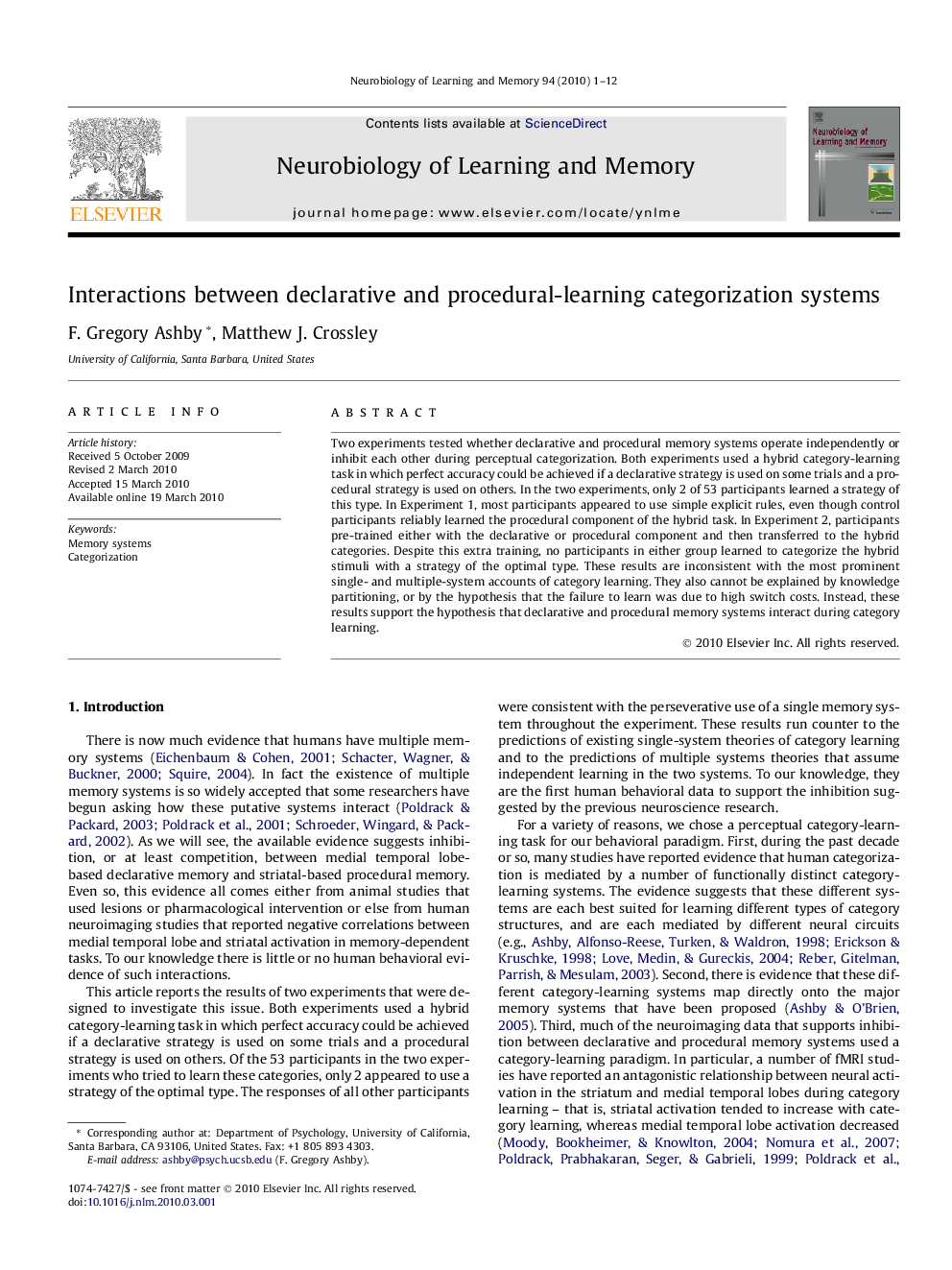| Article ID | Journal | Published Year | Pages | File Type |
|---|---|---|---|---|
| 936859 | Neurobiology of Learning and Memory | 2010 | 12 Pages |
Two experiments tested whether declarative and procedural memory systems operate independently or inhibit each other during perceptual categorization. Both experiments used a hybrid category-learning task in which perfect accuracy could be achieved if a declarative strategy is used on some trials and a procedural strategy is used on others. In the two experiments, only 2 of 53 participants learned a strategy of this type. In Experiment 1, most participants appeared to use simple explicit rules, even though control participants reliably learned the procedural component of the hybrid task. In Experiment 2, participants pre-trained either with the declarative or procedural component and then transferred to the hybrid categories. Despite this extra training, no participants in either group learned to categorize the hybrid stimuli with a strategy of the optimal type. These results are inconsistent with the most prominent single- and multiple-system accounts of category learning. They also cannot be explained by knowledge partitioning, or by the hypothesis that the failure to learn was due to high switch costs. Instead, these results support the hypothesis that declarative and procedural memory systems interact during category learning.
